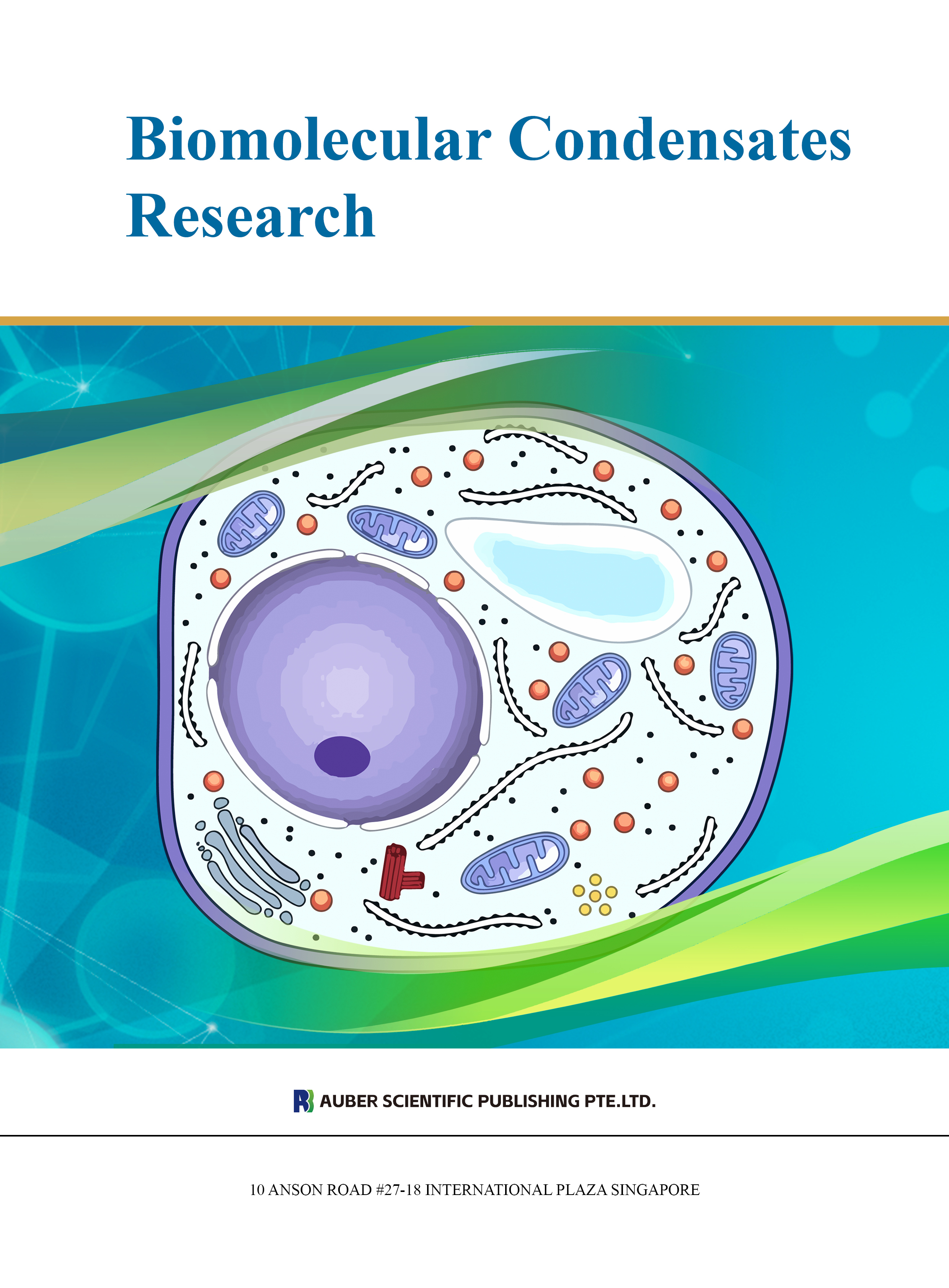About the Journal
Biomolecular Condensates Research is is an international, interdisciplinary, peer-reviewed journal dedicated to publishing cutting-edge research across all aspects of biomolecular phase separation, a rapidly advancing field that is fundamentally reshaping our understanding of cellular organization and function, and whose dysregulation is increasingly implicated in a wide range of critical human diseases. This journal aims to serve as the leading global platform for disseminating high-quality, high-impact discoveries pertaining to the fundamental principles, mechanisms, functions, and pathological relevance of biomolecular condensates. Our objective is to not only advance the basic understanding of phase separation principles and molecular interaction mechanisms but, critically, to contribute to elucidating the mechanisms underlying diseases caused by phase separation dysfunction or aberrant phase separation, to foster the development of novel diagnostic and therapeutic approaches, and to provide a robust theoretical foundation and practical methodologies for the precise clinical management of these diseases.
The scope of Biomolecular Condensates Research encompasses, but is not limited to, the following key areas:
- Fundamental Principles and Mechanisms of Biomolecular Phase Separation:
- Driving Forces: Investigations into the molecular interactions (e.g., multivalent interactions, hydrophobic interactions, electrostatic interactions, π-π interactions) that govern the formation and stability of biomolecular condensates.
- Role of Intrinsically Disordered Regions (IDRs): Studies on the contribution of IDRs to phase separation, including their sequence features, conformational dynamics, and post-translational modifications.
- Influence of Nucleic Acids: Research exploring the roles of RNA and DNA in promoting or regulating phase separation, including RNA-protein and DNA-protein interactions, and the formation of ribonucleoprotein (RNP) granules.
- Environmental Factors: Studies examining the impact of cellular conditions (e.g., temperature, pH, ionic strength, macromolecular crowding) on phase separation phenomena.
- Kinetics and Thermodynamics: Investigations into the dynamics of condensate formation, dissolution, and material properties (e.g., viscosity, surface tension).
- Theoretical and Computational Approaches: Development and application of theoretical models and computational simulations to understand and predict phase separation phenomena.
- Functional Roles of Biomolecular Condensates in Cellular Processes:
- Compartmentalization and Organization: Research on how condensates contribute to the spatial organization of the cell and the formation of membrane-less organelles.
- Regulation of Gene Expression: Studies elucidating the role of phase separation in controlling transcription, splicing, mRNA processing, translation, and RNA degradation. This includes research on chromatin organization, transcription factor assembly, and RNA processing machinery.
- Signal Transduction: Investigations into how condensates modulate signaling pathways by concentrating or sequestering signaling molecules.
- Metabolic Regulation: Research exploring the involvement of phase separation in organizing metabolic enzymes and pathways.
- Cellular Stress Response: Studies on the formation and function of stress granules and other condensates in response to environmental stresses.
- Developmental Biology: Research examining the role of phase separation in regulating developmental processes.
- Aberrant Phase Separation and Human Diseases:
- Neurodegenerative Disorders: Research investigating the role of aberrant phase separation in the pathogenesis of Alzheimer's disease, Parkinson's disease, Huntington's disease, Amyotrophic Lateral Sclerosis (ALS), and other neurodegenerative conditions. This includes research on protein aggregation and the formation of pathological condensates.
- Cancer: Research exploring the involvement of phase separation in tumorigenesis, metastasis, and drug resistance. This includes studies on oncogenic drivers, tumor suppressor pathways, and the tumor microenvironment.
- Other Diseases: Investigations into the role of aberrant phase separation in other human diseases, such as infectious diseases, autoimmune disorders, metabolic diseases, and other conditions associated with phase separation dysfunction.
- Disease Mechanism Research: Studies aimed at in-depth elucidation of the molecular mechanisms by which dysregulation or aberration of phase separation contributes to disease onset and progression, providing a theoretical basis for disease diagnosis and treatment.
- Tools, Technologies, and Therapeutic Strategies: 1
- Novel Experimental Techniques: Development and application of innovative biochemical, biophysical, and cell biology techniques for studying phase separation in vitro and in vivo. This includes advanced microscopy, spectroscopy, and high-throughput screening methodologies.
- Computational Tools and Databases: Creation of new computational tools and databases for predicting, analyzing, and visualizing phase separation phenomena.
- Novel Approaches for Disease Diagnosis and Treatment: Research focused on developing innovative diagnostic tools and therapeutic strategies targeting aberrant phase separation to improve human health. This includes the design of small molecules, peptides, nucleic acids, and other therapeutic agents capable of modulating condensate formation or stability.
Commitment to Excellence and International Collaboration:
Biomolecular Condensates Research is committed to publishing high-impact research that significantly advances our understanding of this dynamic and critical field. The journal welcomes submissions from researchers across the globe and aims to foster robust international collaboration and the exchange of intellectual insights. We are dedicated to upholding rigorous peer review standards, ensuring rapid publication timelines, and facilitating the broad dissemination of knowledge to the global scientific community.
Target Audience:
The journal's target audience includes researchers in cell biology, molecular biology, biochemistry, biophysics, neuroscience, cancer biology, structural biology, and related disciplines, as well as physicians, clinical researchers, and translational medicine specialists with an interest in understanding disease mechanisms and developing novel therapeutic interventions.

